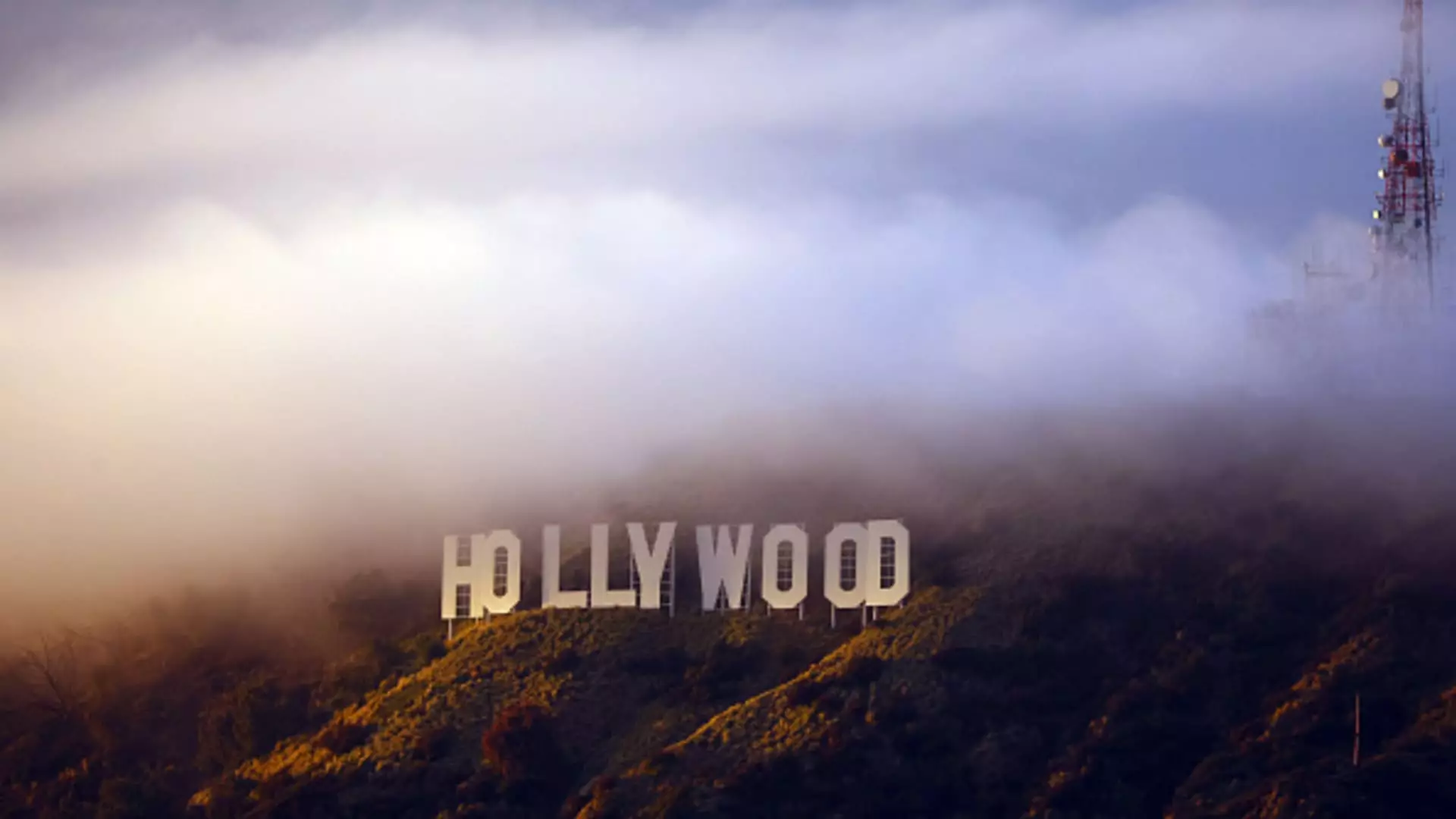The entertainment industry has long thrived on the delicate balance of international relationships, particularly with countries like Canada, which has played a crucial role in producing American films and television. Recent announcements regarding trade tariffs by the Trump administration have sparked concern among Hollywood insiders about the potentially harmful ramifications of a trade war, particularly as it pertains to financial budgets, consumer behaviors, and the overall stability of the industry.
For decades, Canada has operated as a significant partner for Hollywood, often referred to as “Hollywood North” due to its flourishing film industry. Canadian tax credits have lured numerous American productions to set up shop across the border, creating not only financial incentives but also a highly skilled workforce. The imposition of tariffs on Canadian goods may disrupt this mutually beneficial relationship. Industry experts have voiced worries that retaliation by Canada could lead to significant setbacks for studio operations, including the possibility of rescinding advantageous tax credits.
Canadian Prime Minister Justin Trudeau’s commitment to a “forceful and immediate response” to Trump’s tariffs reflects the gravity of the situation. The threat of retaliatory measures could single-handedly impact the influx of productions that have come to rely on the attractive conditions that Canada presents. If these measures restrict access to tax incentives or financial resources, the repercussions could reverberate across various sectors of the film industry.
While many studios operate with local resources, there are still specific needs that drive them to look internationally for materials. Production budgets often include costs for textiles and specialty materials that may come from Canada. Industry insiders caution that tariffs could escalate these costs, resulting in financial strain for studios already grappling with pandemic-related recovery. Catering supplies, import materials for unique set construction, and even costume elements that cross borders may now come with additional financial burdens.
However, an examination of typical production logistics shows that studios often utilize rental equipment for shooting, insulating them against some of the pressures from tariffs. Equipment is frequently leased from warehouses, and since much of the essential gear—like cameras and lighting—is locally sourced, the overall impact of tariffs may be cushioned. Nonetheless, filmmakers and studios are left to strategize on how to remain financially viable in an environment of increasing costs.
The real uncertainty lies not just in production but also in consumer behavior. If goods imported from Canada and other affected nations see price hikes as companies pass costs onto the consumer, it could lead to a downturn in discretionary spending. The collaborative report from industry professionals raises alarms that tightened budgets could result in fewer visits to theaters. Given that Hollywood has only recently begun to recover from pandemic shutdowns and labor strikes, a stagnant box office could further stagnate growth and recovery.
The prospect of rising prices at the ticket counter could deter moviegoers from indulging in a night at the movies, creating a complex dilemma for the industry. As the industry attempts to rebound, it must address this potential shift in consumer spending habits head-on, recognizing that audiences may opt for fewer entertainment expenditures or choose alternative viewing methods, such as streaming services, which have gained in popularity during recent years.
Despite these hurdles, many experts in the industry are optimistic about Hollywood’s ability to navigate the consequences of tariffs. The understanding is that, despite financial pressures, blockbuster films slated for release have immense selling potential, which could drive ticket sales even if general consumer confidence wavers. The industry’s resilience will undeniably be tested, but the hope remains that the ability to adapt will ensure the continued success and longevity of Hollywood’s cultural influence.
The potential implications of Trump’s trade tariffs create a swirl of economic concern for Hollywood. From disrupted production budgets to altered consumer behavior, the ramifications could be significant. Only time will tell how the entertainment industry will adapt and navigate the complexities posed by geopolitical tensions and economic factors, but industry professionals are gearing up for an uncertain journey ahead.

